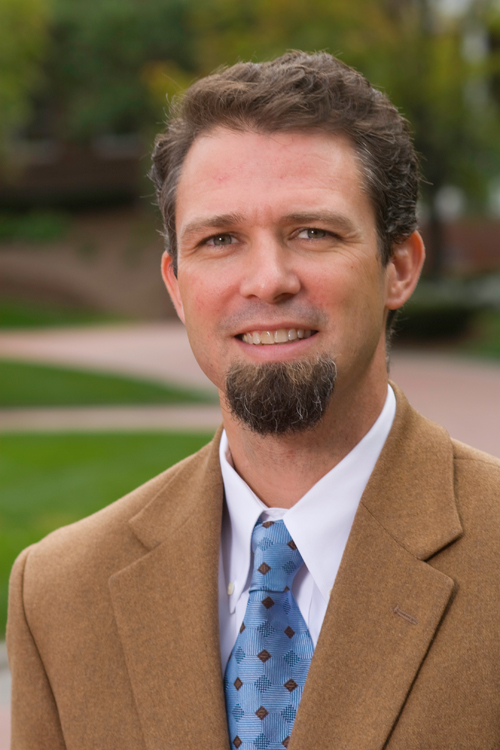FAYETTEVILLE, Ark. – The most significant change Greg Hanley has seen in his 20 years working in the field of developmental disabilities is a shift in focus from behavior modification to behavior analysis. Hanley will share his expertise in behavior analysis at the University of Arkansas Autism Spectrum Disorders Symposium on March 30-31 in Fayetteville.
Hanley, a professor of psychology, directs the behavior analysis doctoral program at Western New England University in Springfield, Mass. Hanley is keynote speaker for both days of the symposium. His session on Friday, March 30, will focus on information for educators, while the Saturday, March 31, session will focus on information for parents and other caregivers. Both sessions are open to anyone interested in attending with paid registration.
Autism is a neurological disorder. The U.S. Centers for Disease Control and Prevention estimates that an average of 1 in 110 children in the United States has an autism spectrum disorder, which are all characterized by varying degrees of impairment in communication skills, social interactions, and restricted and repetitive patterns of behavior. According to the CDC, not all causes of autism spectrum disorders are known, but it is likely there are many causes.
Hanley explained that behavior modification techniques focus on motivating children to behave differently through a system of rewards and punishments. In contrast, behavior analysis is characterized by first understanding why problem behavior occurs and basing treatment on that understanding, he said. Behavior analysis incorporates a measure of humility not found in behavior modification, he said.
“Behavior analysis is recognized as a frontline, evidence-based approach to the unique problems associated with autism spectrum disorders,” Hanley said.
The approach gained strength in the past two decades from support by a grass-roots parents’ movement that favored evidence-based therapy, he said, and it gained validation through the work of Ivar Lovaas, a world-renowned autism expert. Lovaas developed a model of applied behavior analysis and reported that more than 40 percent of children on the autism spectrum were mainstreamed into regular classrooms after two years of behavior analysis therapy, Hanley said.
In the session March 30, Hanley will explain usable strategies and curriculum designed to prevent the development of problem behavior in the classroom. In the session March 31, he will emphasize techniques to promote healthy sleep for children with autism, techniques that do not rely on medication. About 75 percent of children with an autism spectrum disorder suffer clinical levels of sleep disturbances, Hanley said.
This will be the fourth time that the curriculum and instruction department in the College of Education and Health Professions has sponsored the two-day symposium to provide professionals and parents the latest information on helping children with autism spectrum disorders. There is a cost for the symposium with continuing education credits available. A reduced rate is offered for students, and registration may be completed online.
The Arkansas Department of Education/Special Education and Arkansas Behavior Intervention Consultants are co-sponsoring the symposium.
The curriculum and instruction department offers a Master of Education degree in special education that includes a focus on autism spectrum disorders, as well as a graduate certificate on the topic. Two of the special education program’s professors, Tom Smith and Barbara Gartin, have attained the prestigious rank of University Professor. Smith is also the dean of the College of Education and Health Professions, and he has served since 1994 as the executive director of the Division on Developmental Disabilities of the Council for Exceptional Children, a national, professional organization with more than 6,000 members. The two faculty members have collaborated on a number of textbooks that address inclusion of children with disabilities.
The college also recently established an Autism Support Program for incoming freshmen at the university this fall. More information is available on the program's website.
Contacts
Barbara Gartin, University Professor of special education
College of Education and Health Professions
479-575-7409, bgartin@uark.edu
Heidi Wells, content writer and strategist
Global Campus
479-879-8760,
heidiw@uark.edu
